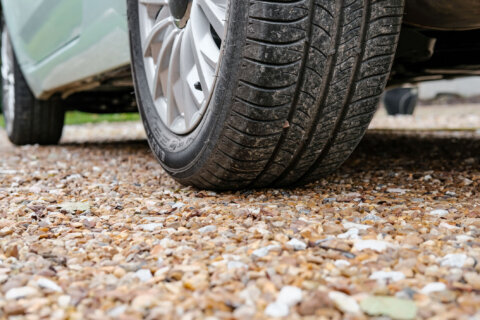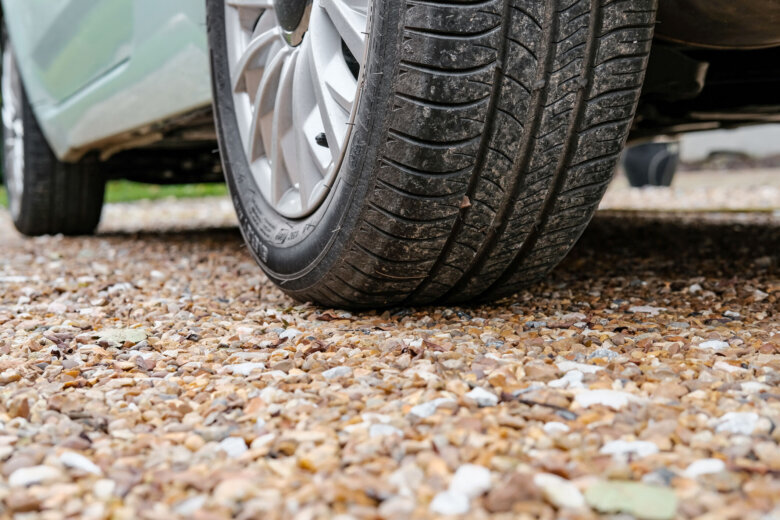
In the movie “Gone in 60 Seconds,” the entire car vanished — with the current rash of tire and rim thefts, the ugly skeleton of a stripped car is left behind.
Local police have called it a regional problem, and are offering tips and strategies to try to prevent wheel thefts.
“People are waking up in the morning and their tires have been taken off their cars,” said D.C. police Chief Robert Contee, in an October news conference. Victims of wheel theft often find their cars perched on cinder blocks or rocks.
The Washington Post reports there were 610 tire and rim thefts in 2022 in D.C., compared with 161 the previous year. Wheel thefts have also increased in Prince George’s County, Maryland, but the number of thefts has dropped in the Virginia suburbs.
AAA says the cost to replace the tires and rims runs between $3,000 and $4,000.
Here are some tips from D.C. Police that are being circulated by area neighborhood commissioners in communities recently affected by tire and rim thefts, including Shepherd Park and Brightwood.
Buy lug nut locks
This solution involves replacing one of the lug nuts on each wheel with a lock, which requires a special tool to remove. Often a dealer add-on when you buy your vehicle, they cost around $100 for four (one for each wheel).
They’re also available at auto stores or online for a little less; you can put them on yourself or bring them to a mechanic to install for you. For extra protection, you can buy lock kits for all of the lug nuts on your wheels.
Just don’t lose the key, which you’ll need to remove the wheel should you have to change a flat tire.
Install an alarm with a sensor
Unlike standard car alarms, which alert you when your car has been broken into, alarms with sensors can detect a tilt or angle change if thieves try to jack up your vehicle.
Some high-end, newer vehicles offer this type of alarm, or you can buy it as an aftermarket addition for $250 to $500. A couple caveats on the aftermarket option: The sensors may not sync with your car’s existing alarm, and you’ll need to have a repair shop install them, which costs an additional $225, on average.
All told, you might be looking at more than $700 — a lot of money, but less than what you’d spend on a new set of wheels.
Park in secure, well-lit areas
Thieves almost always strike at night, staking out areas where they’re less likely to be discovered, such as a dark street without lights. Stay in areas where there’s more traffic, both vehicular and pedestrian, and where there are security cameras, if possible. If you’re parking somewhere overnight, make sure your car is visible.
Turn your wheels
When you park your car, turn the wheels to a 45-degree angle. This will make it difficult for a thief to get the lug nuts off, because the inner fender will likely be in the way.
Park close to the curb
When parallel parking on the street, get as close as you can to the curb. The closer your vehicle is, the more difficult it will be for a thief to put a jack underneath your car. While the street side of your car will still be exposed, at least the tires on the curbside of your car will be better protected.”









